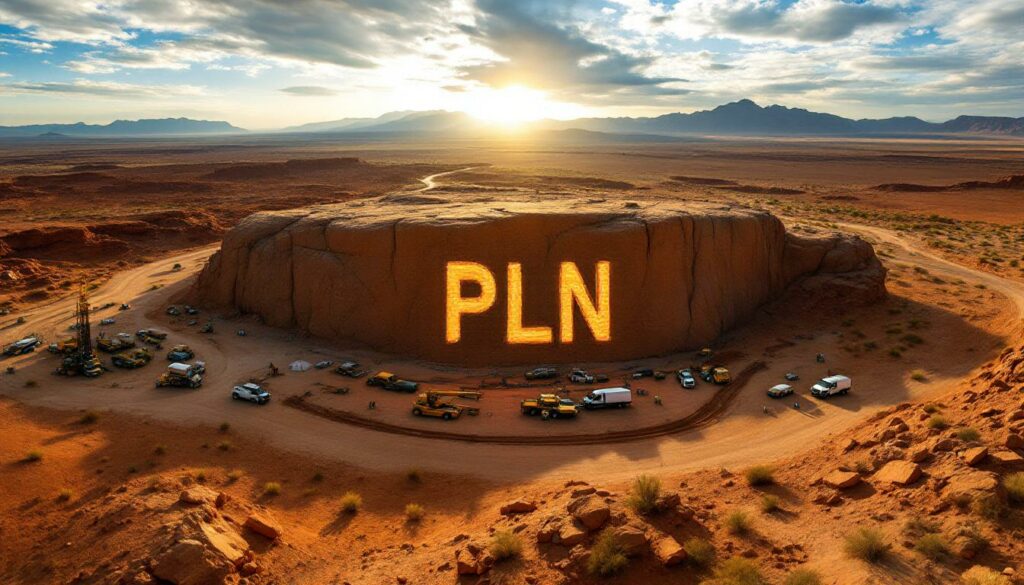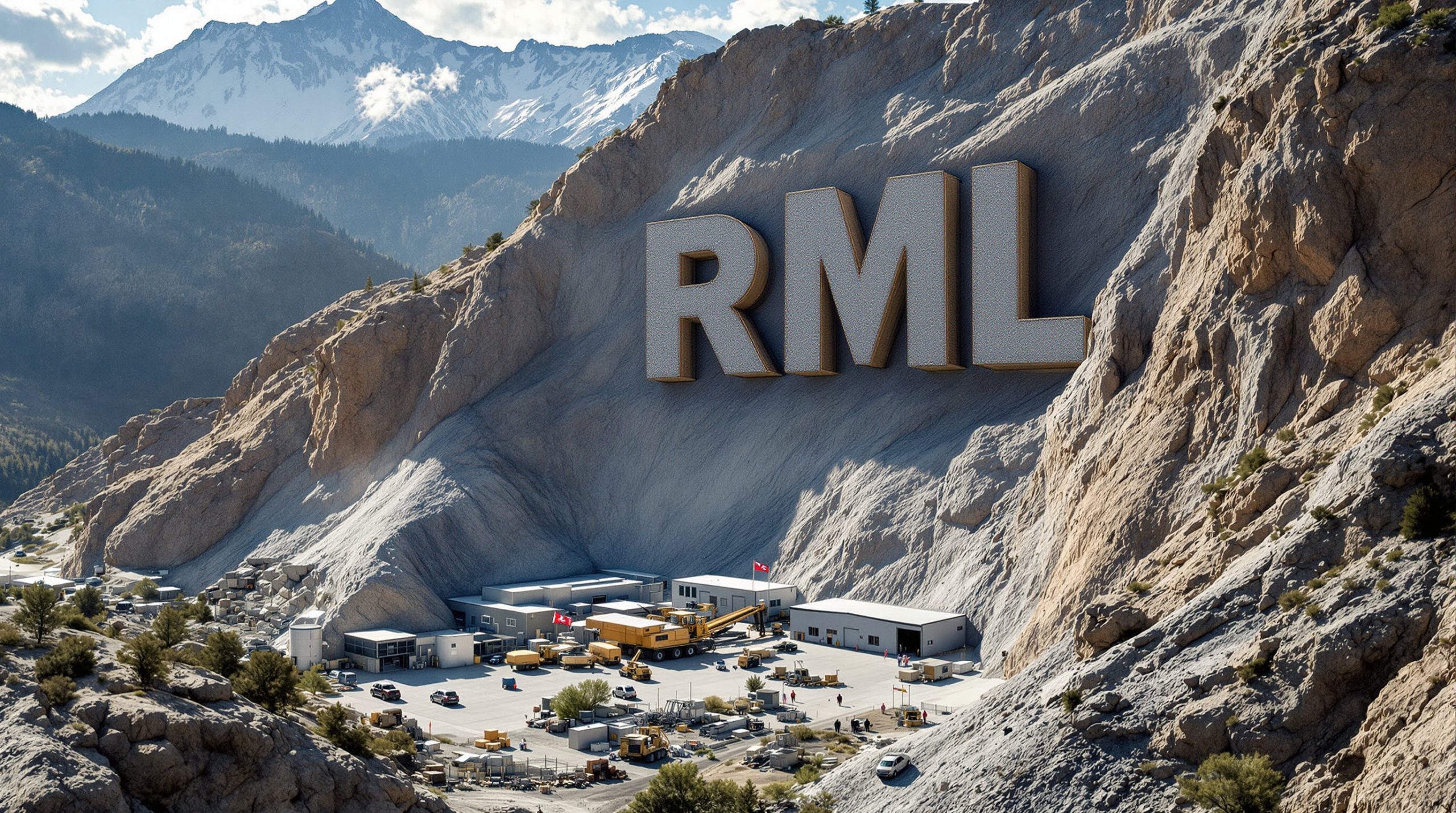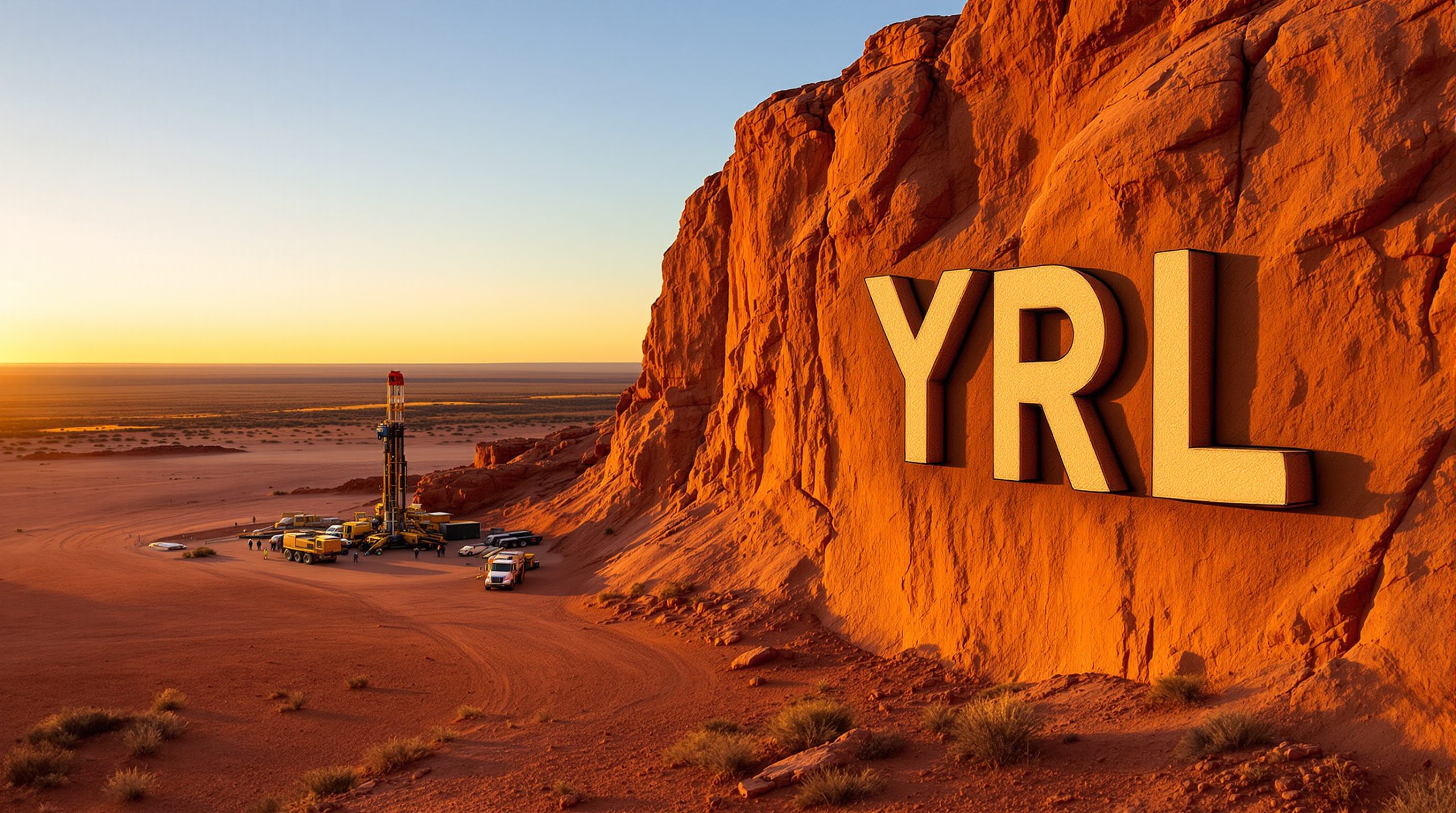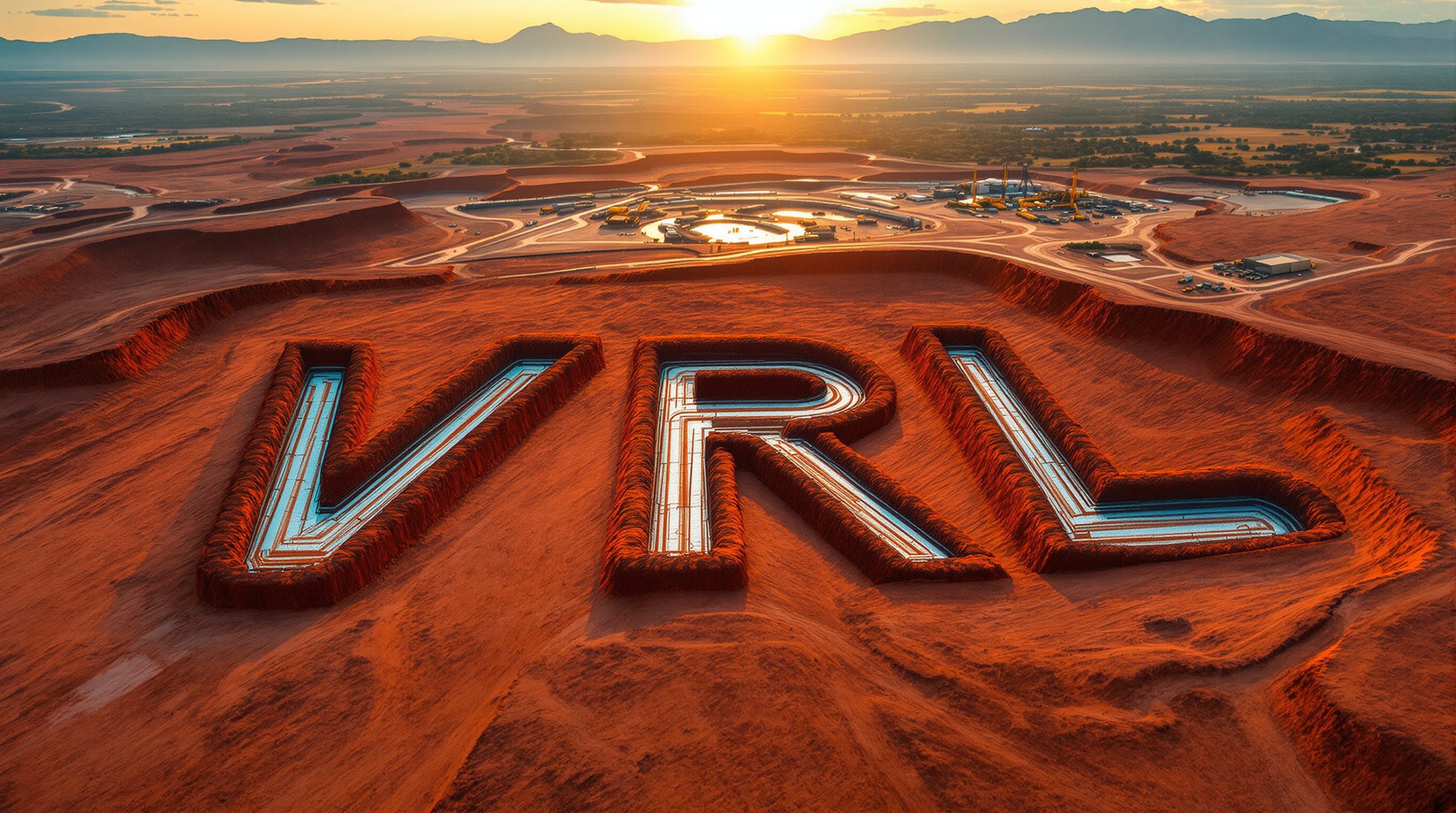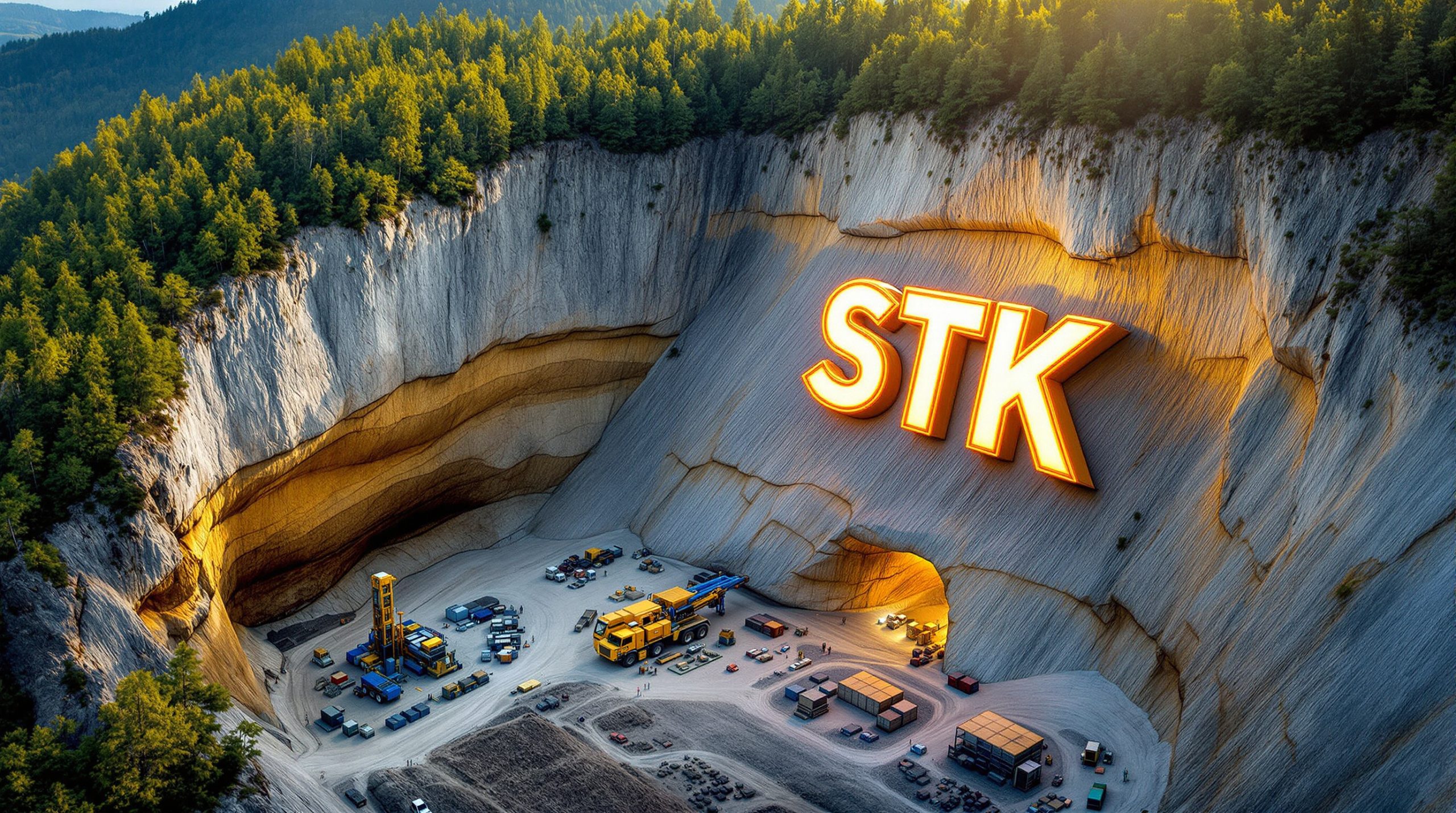Pioneer Lithium Defines 22-32 Million Tonne Uranium Exploration Target at Warmbad
Pioneer Lithium (ASX: PLN) has announced the definition of a significant Exploration Target at its Warmbad Uranium Project in Namibia, estimating 22.2-32.1 million tonnes at grades of 100-120 ppm U₃O₈. This target establishes a quantifiable foundation for future resource development in a tier-one uranium jurisdiction.
Significant Exploration Target Demonstrates Scale Potential
Pioneer has successfully established a conservative Exploration Target at its Pioneer Lithium Warmbad project based on 31.7km of historic drilling data. The target spans multiple mineralised zones across Areas 1, 3 Extension, 3, and 5, with the following specifics:
| Area | Lower Estimate (Mt) | Upper Estimate (Mt) | Grade U₃O₈ (ppm) |
|---|---|---|---|
| Area 1 | 4.51 | 6.52 | 100-120 |
| Area 3 Extension | 1.70 | 2.46 | 100-120 |
| Area 3 | 7.89 | 11.40 | 100-120 |
| Area 5 | 8.12 | 11.73 | 100-120 |
| Total | 22.22 | 32.11 | 100-120 |
What makes this announcement particularly significant is that all mineralised areas remain open in multiple directions, indicating substantial growth potential beyond the current Exploration Target boundaries.
"The Exploration Target allows PLN to present an initial, quantifiable range of uranium mineralisation at Warmbad, based on historic work completed by Xemplar Energy. The Exploration Target has significant room to increase as all known areas of uranium mineralisation are open in multiple directions. It is expected that further exploration drilling will result in a significant increase in size."
— Michael Beven, CEO of Pioneer Lithium
Strategic Location in Namibia's Uranium Corridor
The Warmbad Project encompasses 271 square kilometres under Exclusive Prospecting License 8838 within Namibia's southern uranium corridor. The project is situated in the Namaqua Metamorphic Complex, a recognised uranium-bearing province where mineralisation occurs within leucocratic alaskitic intrusions.
This geological setting is directly analogous to the Rossing uranium deposit, one of Namibia's premier uranium operations. The uranium mineralisation at Warmbad is structurally controlled along fold hinges and northeast-trending faults within granite-hosted systems, providing multiple exploration vectors.
Namibia continues to be a premier global uranium jurisdiction with established mining operations and a supportive regulatory framework, making the Warmbad Project strategically positioned for development.
Understanding Exploration Targets in Uranium Exploration
An Exploration Target represents a range of potential tonnage and grade based on geological evidence but with insufficient exploration to define a Mineral Resource. For uranium projects, establishing an Exploration Target is a critical early step in the resource development pathway.
In the case of Warmbad, the Exploration Target was generated utilising 31,685 metres of historic drilling completed between 2007 and 2009. The methodology involved:
- Wireframing and 3D modelling of four main deposit areas
- Using anomalous uranium XRF assay values (minimum ~75 ppm UXRF) to define mineralised extents
- Applying geostatistical analysis to determine sample distribution
- Using Ordinary Kriging interpolation to estimate grades within the wireframes
- Applying a conservative approach with limited extrapolation beyond known data points
This conservative approach means the current Exploration Target likely represents a baseline from which significant expansion is possible with additional drilling.
Multiple Growth Pathways Identified
Pioneer has outlined several growth opportunities to expand the Exploration Target and advance toward resource definition:
- Step-out drilling at known mineralisation zones – All mineralised areas remain open in multiple directions
- Testing untested intrusive bodies – Multiple areas of granite and alaskite intrusive rocks remain untested
- Modern geophysical surveys – A drone-based radiometric and magnetic survey will identify additional targets
- Potential sedimentary-hosted uranium – The company will evaluate the potential for paleochannel uranium deposits
"Additionally multiple areas of granite and alaskite intrusive are recorded in the project area that remain untested. Confidence in the interpretations of regional scale low quality radiometric surveys completed in 2007 by Xemplar prevents the inclusion of such areas in the Exploration Target. After the completion of a modern drone based radiometric and magnetic survey any untested zones of intrusives that return a discrete radiometric anomaly can then be included with confidence."
— Michael Beven, CEO of Pioneer Lithium
Uranium Mineralisation Styles at Warmbad
The Warmbad Project is prospective for two main styles of uranium mineralisation:
-
Hard Rock Rossing-Style Mineralisation: This was the primary focus of previous exploration at Warmbad. In this style, uranium mineralisation is hosted within alaskite granite intrusions, structurally controlled along fold hinges and northeast-trending faults. This mineralisation style is directly analogous to the Rossing uranium deposit in central Namibia, one of the country's premier uranium operations.
-
Paleochannel-Hosted Uranium: Pioneer has identified potential for this secondary style of mineralisation at Warmbad. Paleochannel-hosted uranium can occur in multiple forms:
- Sandstone-hosted
- Basal-hosted
- Unconsolidated sediment-hosted
- Calcrete-hosted
The company plans to evaluate this potential through its upcoming exploration programme, which could significantly expand the resource potential beyond the alaskite-hosted mineralisation currently included in the Exploration Target.
Upcoming Catalysts and Development Timeline
Pioneer has outlined a clear path forward to advance the Pioneer Lithium Warmbad project:
- Land Access Agreements – Working through agreements with landowners and approvals with the Ministry of Mines and Energy
- Modern Geophysics – Conducting high-resolution drone-based radiometric and magnetic surveys
- Targeted Drilling – Twinning key historic holes and conducting step-out drilling
- Resource Definition – Converting the Exploration Target to an Inferred Resource classification
The company has noted it has strong support from local Warmbad and Karasburg authorities for its development plans, which should facilitate the advancement of these initiatives.
Why Investors Should Track Pioneer's Uranium Development
Pioneer Lithium's Warmbad Uranium Project presents a compelling investment case for several reasons:
- Scale Potential – The established Exploration Target of 22-32 million tonnes already demonstrates significant scale, with all mineralised zones remaining open
- Tier-One Jurisdiction – Namibia is an established uranium producer with clear regulatory frameworks
- Infrastructure Advantages – The project benefits from favourable infrastructure access and established regional mining services
- Multiple Growth Vectors – With untested targets and open mineralisation in all directions, the growth potential is substantial
- Clear Development Pathway – Pioneer has outlined a methodical approach to advance from Exploration Target to Resource
As global uranium markets strengthen amid nuclear power's resurgence as a clean energy solution, projects with scale potential in established jurisdictions like Warmbad become increasingly valuable. Pioneer's systematic approach to unlocking this value presents an opportunity for investors seeking exposure to the uranium sector's growth trajectory.
Mineralisation Geometry and Expansion Potential
The exploration target comprises four distinct areas, each with unique mineralisation characteristics and expansion potential:
Area 1 features two zones of intruded mineralised alaskite sheeting approximately 500 metres apart. The northern segment shows multiple bands of alaskite with a horizontal orientation, while the southern section comprises multiple bands of uranium-hosting alaskite sheeting that dips northward at a shallow angle. Notably, the current Exploration Target calculation does not extrapolate mineralisation between these two zones, presenting significant potential for expansion.
Area 3 Extension contains multiple relatively flat-laying horizons of uranium-bearing alaskite sheets that remain open to the north, north-west, north-east, east, and south-east. This configuration provides considerable opportunity for size increases and additional discoveries with further exploration drilling.
Area 3 includes multiple thick bands of mineralisation that dip eastward and remain open to the north, east, south-east, and at depth. The mineralised horizons extend to the full depth of historic drill holes, suggesting potential for additional mineralisation beyond the current drilling extent.
Area 5 displays complex geometry with the western flank of mineralisation moderately dipping northward, while the eastern flank moderately dips southward. Both inversely dipping flanks are inferred to remain open at depth, presenting significant growth opportunities.
Key Takeaway:
Pioneer Lithium has established a significant uranium footprint in Namibia with its 22-32Mt Exploration Target at Warmbad. With all mineralised zones remaining open and multiple untested targets, the project demonstrates substantial growth potential in a tier-one uranium jurisdiction. As the company advances its modern exploration programme, investors should watch for resource definition milestones that could significantly enhance the project's value proposition.
Ready to Capitalise on Pioneer's Uranium Potential?
Discover how Pioneer Lithium's significant 22-32Mt uranium exploration target at Warmbad could provide compelling investment opportunities in Namibia's premier uranium jurisdiction. With all mineralised zones remaining open and a clear development pathway ahead, now is the time to follow Pioneer's progress. For the latest updates and to stay informed about this emerging uranium opportunity, visit the company's investor channel at https://www.youtube.com/channel/UC04T_RCmcurP5yU_YX9ujXw.
